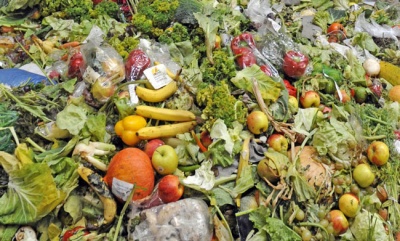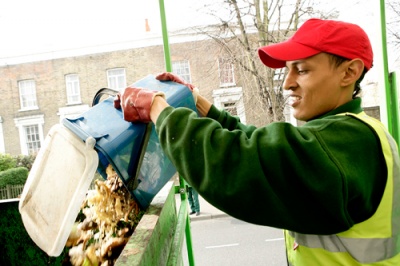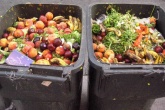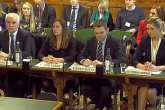Force retailers to publish food waste figures, say MPs
The government should establish a national food waste reduction target, with retailers forced to publish transparent figures on their generated food waste, after the current voluntary approach has proved ‘inadequate’, says Parliament’s Environment Food and Rural Affairs (EFRA) Committee.
The committee has today (30 April) released a report, ‘Food Waste in England’, saying that the government and supermarkets should do more to combat food waste.
Among a range of interventions and measures, it recommends that the government should introduce a food waste reduction target, in order to tackle the problem of food waste which is costing UK families an average of £470 a year, while supermarkets should relax rules on the sale of wonky vegetables and publish data on how much food they throw out.
The inquiry into the economic, social and environmental impact of food waste was launched midway through 2016 and has seen a range of evidence provided by a variety of stakeholders. Food waste campaigners Hugh Fearnley-Whittingstall and Tristram Stuart called for greater transparency from supermarkets, while four of the largest supermarkets in the UK gave evidence earlier this year, defending the use of voluntary reduction targets.
Speaking upon the release of the report, Committee Chair Neil Parish MP said: “One-third of food produced for human consumption is lost or wasted globally and in the UK over £10 billion worth of food is thrown away by households every year.
“Food waste has grotesque economic, social and environmental costs. Economically, food waste costs households hundreds of pounds a year and causes increased disposal costs to local authorities, pushing up council tax bills.
“Socially it is a scandal that people are going hungry and using food banks when so much produce is being wasted. And environmentally it is a disaster, because energy and resources are wasted in production only for the food to end up rotting in landfills where it produces methane – a potent climate-changing gas.”
Mandatory action required
The issue of food waste is one which is having a deleterious effect on families, businesses and the environment. Around 10 million tonnes of food and drink waste is created after it leaves the farm each year, around 60 per cent of which is considered avoidable. Globally, the United Nations estimates that one-third of food produced for human consumption is lost or wasted, culminating in around 1.3 billion tonnes of waste per year.
According to the committee, the average family spends £470 a year on food that is later thrown away, while the retail industry is responsible for 200,000 tonnes of food waste each year, costing it £650 million.
Speaking at the final evidence session last week, Resource Minister Therese Coffey said that the government’s current voluntary approach to local authorities and retailers was producing good results, and revealed that she was “not convinced” that retailer transparency would make any difference.

Parish says that this is not good enough and that retailers must be made to reveal details of their food waste: “We commend Tesco for publishing its food waste data from across the supply chain. Sainsbury's is moving in the same direction, but we need more transparency.
“The fact that no other retailers have followed their lead shows that a voluntary approach is inadequate. The government needs to step in and force other major supermarkets to be transparent about food waste. We welcome the will shown by retailers to redistribute surplus food. However, we believe that more must be done. There is a huge amount of surplus food that is currently not being redistributed.
Parish said: “The government should drive progress on food waste in England by setting a national target for food waste reduction. In the way that Scotland [a third by 2025], the USA [half by 2030] and many of our European counterparts do.
“And supermarkets need to do much more. It’s ridiculous that perfectly good vegetables are wasted simply because they’re a funny shape. Farmers supplying fruits and vegetables to UK supermarkets currently get their produce rejected on the grounds that it fails to meet cosmetic quality standards set by the big retailers. Knobbly carrots and parsnips don’t cook or taste any different. It’s high time we saved them from the supermarket reject bins!”
Better food waste recycling provisions
Parish added: “The best thing we can do is to prevent raw materials, ingredients and products from becoming waste in the first place. If surplus cannot be prevented, then redistribution to people in need or as animal feed is the next best option.
“Once it is thrown away the best way of dealing with food waste is to recycle it by sending it to anaerobic digestion or composting. The worst way to deal with it is to send it for disposal through waste incineration without energy recovery or to send it to landfill.”
 Currently, only 32 per cent of English councils provide separate food waste collections at the kerbside. Coffey said that rather than forcing councils to take on separate food waste collections, the government was working with them to be ‘more proactive’ in undertaking recycling initiatives.
Currently, only 32 per cent of English councils provide separate food waste collections at the kerbside. Coffey said that rather than forcing councils to take on separate food waste collections, the government was working with them to be ‘more proactive’ in undertaking recycling initiatives.
And while the EFRA report notes that local authorities ‘should remain responsible for addressing the specific challenges and barriers that they face at a local level’, it suggests that more guidance and best practice should be shared at a national level to move towards ‘a more standardised approach’ to help local authorities improve their performance, with the suggestion that the incoming government consider a national strategy ‘to ensure a consistent collection of waste and recycling across the UK’.
WRAP last year published both a framework for consistent collections following a year of cross-sector work, and a Food Waste Recycling Action Plan to try to increase the quantity and quality of food waste recycled in the UK.
Food waste in the curriculum
The EFRA Committee report concludes that the government should lead the effort to tackle the food waste crisis through raising public awareness on the issue, providing sufficient funding for WRAP, working closely with local authorities, and reviewing current food labeling practices.
In terms of raising public awareness, the report recommends that the government should ensure children are well versed on the issues of food waste and that it should look at ways of incorporating food and food waste into the curriculum.
The report also calls for increased funding from government and other sources for WRAP, with Defra’s funding for WRAP having been reduced in recent years, to allow it to continue its work on UK-wide voluntary food waste reduction initiatives.
Finally, any incoming government should continue to work with WRAP and the Food Standards Agency (FSA) to review food labeling, specifically as to whether there is a need for ‘best before’ dates, given the confusion surrounding these and ‘use by’ dates.
Supermarkets should also seek to make improvements to their packaging, including the use of re-sealable packets, to help customers to reduce their food waste, while the government should mandate food businesses and retailers over a particular size to separate food waste.
The EFRA committee’s report on food waste in England can be read on the committee’s website.










